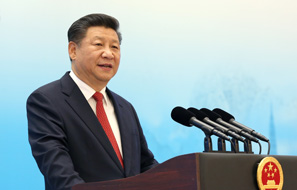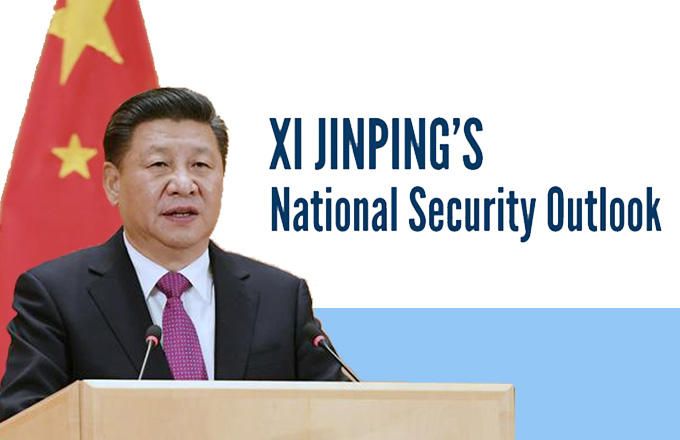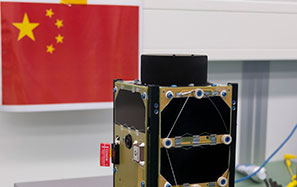Taking China's university innovation to market
BEIJING ?-- Zhang Xiao and her fellow students at Tsinghua University's School of Aerospace Engineering have an idea that could save more lives.
The second-year graduate student and her colleagues developed a technology to painlessly detect diseases such as early-stage liver cancer.The technology has won several patents, but the students had no clue how to get it on the market.
"It turned out that a startup company is the only way to protect our patents and make the best use of it. I also want to learn how to protect our intellectual property as a startup," says Zhang, a biomechanics major.
Now she is taking an entrepreneurship course at Tsinghua's Beijing campus.
The two-credit elective course-Innovation and Entrepreneurship: Silicon Valley Insight-was jointly launched by Tsinghua's School of Economics and Management, and Facebook.
The 200 attendees from many fields of expertise get insights into Silicon Valley's latest innovations and entrepreneurial practices.
Moreover, they must come up with their own business ideas and form a team of five to develop a business plan.
The five members play the role of chief executive officer, chief marketing officer, chief design officer, chief brand officer and chief technology officer. Each team will make their final presentations and give project demos at the end of the course.
Zhang has never studied business before.
"My project in this course is actually from my lab. We basically solved a technical problem and now we need to commercialize it," she says. "Through this course, I am expecting to figure out how we can commercialize scientific achievements and the whole procedure."
The Chinese government is keen to nurture entrepreneurship and innovation, and the Ministry of Education has instructed all colleges and universities to set up compulsory or elective innovation and entrepreneurship courses.
Tsinghua University is a pioneer in this field. In 2013, it launched x-Lab, a university-based platform designed to foster student innovation and entrepreneurship. X-Lab operates under the auspices of the School of Economics and Management and links 14 schools and departments across the university.
It aims to help students master the basics of innovation and business startups through courses, workshops and competitions. It also introduces student entrepreneurs to investors, mentors and team members.
Mao Donghui, executive director of x-Lab, sees technology talent and scientific breakthroughs in abundance at Tsinghua. But many students tend to focus only on their research discipline and have a narrow base of knowledge, Mao says, and it's necessary to nurture awareness of how technology relates to innovation and the potential for entrepreneurship.
"Some research findings by Tsinghua students are better than their international peers', such as Silicon Valley companies. And many of them have begun to recognize startup opportunities and to develop their technology-led ideas into early-stage businesses or commercial projects," Mao says.
"The creativity of students is like a seedling in a pot. Only when the seedling is planted in good soil and well-nurtured can it flourish. We want to try every means to boost their understanding of innovation and startups."
Although many universities recognize the importance of entrepreneurship education, questions remain. How should entrepreneurship courses be conducted? Who is qualified to teach these courses?
In an open online discussion in March, Vice-Minister of Education Lin Huiqing said that inviting entrepreneurs and venture capitalists who have hands-on experience into classrooms will help improve entrepreneurship education.
She said the Ministry of Education and local education sectors will build an online platform listing a talent pool of more than 10,000 innovation and entrepreneurship mentors by the end of 2017.
Tsinghua has been exploring new ways to enrich their entrepreneurship education, including encouraging students to think with a global perspective.
In 2016, Tsinghua invited US venture capitalist and entrepreneur Peter Thiel to teach a one-credit elective course "Start-Up Thinking". Thiel is famous for his start-up course at Stanford University. As well as bringing the latest ideas in innovation and entrepreneurship, he also encourages students to compare and analyze entrepreneurship and venture capital in China and the United States.
Tsinghua has been updating entrepreneurial courses to incorporate new trends and to meet students' needs in starting businesses.
X-Lab's Mao says Tsinghua's IP and Business Strategy course informs students how to protect intellectual property as a startup.
"Students lack business experience and can overlook problems. Without proper patents, a startup can be less appealing for investors and even face patent-infringement lawsuits," says Mao.
"In this course, we invite intellectual-property specialists as well as chief IP officers from world-leading companies such as Qualcomm, IBM and Tencent.
"They discuss how these mature companies deal with intellectual-property issues, which is valuable for students planning startups."
Entrepreneurship courses also create platforms for alumni networking. Hu Changran selected the Silicon Valley Insight course. The undergraduate majoring in electronic engineering has an idea for automatic composition, an artificial intelligence adaptation for music. He hopes to meet other entrepreneurial hopefuls through the course.
"I want to discuss startup ideas with students from different disciplines, which will help give me a more comprehensive view," Hu says. "I also hope to find some future partners."
- Country to draft job skills plan with BRICS partners
- Turkish leader tells vice-premier he's eager for Belt & Road forum
- Unusual home spells happiness for man, ex-wife and her husband
- Xi encourages bigger role of Internet Plus in poverty alleviation
- Most fake postings relate to health, food





















